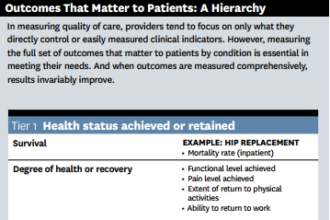Three Republican Senators have released a health-care reform proposal that has attracted much attention. One of the three, Orrin Hatch, is likely to chair the Senate Finance Committee if the Republicans win the majority in the Senate.
Three Republican Senators have released a health-care reform proposal that has attracted much attention. One of the three, Orrin Hatch, is likely to chair the Senate Finance Committee if the Republicans win the majority in the Senate.
John G oodman has described the bill neutrally. At Forbes, Matthew Herper describes the effect of capping the employer-based exclusion at 65 percent of the cost of an average plan, and subsidizing people who earn less than 300 percent of the Federal Poverty Line (FPL) with tax credits to buy their own policies. Herper concludes that, for a household in the 25 percent marginal tax bracket, capping the exclusion will result in a tax hike of about $1,345.
oodman has described the bill neutrally. At Forbes, Matthew Herper describes the effect of capping the employer-based exclusion at 65 percent of the cost of an average plan, and subsidizing people who earn less than 300 percent of the Federal Poverty Line (FPL) with tax credits to buy their own policies. Herper concludes that, for a household in the 25 percent marginal tax bracket, capping the exclusion will result in a tax hike of about $1,345.
One important part of the proposal that has not received enough critical attention is “continuous coverage protection”, in section 202 of the summary. This is basically a “super-HIPAA” provision and it has problems not immediately apparent to the casual reader. There is a better way.
HIPAA is the 1996 federal law that allows you to move from one employer’s plan to another’s without being underwritten and being charged a higher premium for pre-existing conditions. In co-ordination with state laws, it also allowed people to move from employer-based coverage to individual coverage with the same insurer without re-underwriting.
However, to enjoy this protection, a couple of things had to take place. First, you had to use (expensive) COBRA coverage after leaving your job until it expired. Then, even though you were not re-underwritten when going into the individual market, there was no guarantee that the premiums would be affordable. Some states had laws to mitigate the latter effect. In California, for example, a carrier’s post-COBRA HIPAA continuation coverage had to offer beneficiaries the two most popular plans in the individual market, at standard premiums.
HIPAA did not solve another big problem for those who maintained continuous coverage: If you wanted to switch insurers, the new insurer could re-underwrite and increase premiums for a pre-existing condition. The new Republican bill purports to solve this by simply extending the continuous coverage protection across all insurers. The proposal needs significant improvement, because it will demand finely detailed, complex, and burdensome regulations to overcome selection problems.
Avik Roy notes that some in the Twitter-verse think that the continuous coverage provision will lead to people choosing skinny plans when they are healthy and comprehensive plans when they are sick. Let’s also remember that insurers will seek to avoid this happening to them. Although the law will try to force them to accept all comers who had previous coverage, they will find creative ways to avoid enrolling people who want to switch to comprehensive plans, knowing that they are likely to be sicker.
Insurers will design plans in the individual market that attract the healthy and repel the sick. For example, they might offer free health-club memberships while not having robust networks of specialist physicians. Clearly, the only way to avoid this is for the government to heavily regulate the design of health insurance. This leads to more bureaucracy, government meddling, and all the other things associated with trying to force people to do that which they do not want to do.
But there is a solution: Health-status insurance, as described by John Cochrane of the University of Chicago in a 2009 proposal and described by John Goodman in Priceless and here as “insurance against getting a pre-existing condition.” With health-status insurance, part of the insured’s premium pays for a policy that pays out if he falls ill and then tries to switch insurers. The payoff from the health-status insurance finances the insured person’s higher premiums in a new plan. It is a win-win situation: The sick person has a wide choice of health plans that he can afford, and the health plans compete to enroll — not avoid — the sick.
Cochrane envisions this as the natural state of health insurance in a market where individual coverage is the norm. The Senate Republicans’ proposal does not go that far, preserving employer-based benefits for most Americans.
Whether health-status insurance can arise under such a distortion is unclear (although it may be possible in private health-insurance exchanges). Certainly, it will need to be thought through if Senate Republicans hope to develop a bill without unintended consequences for those who need health insurance the most.






